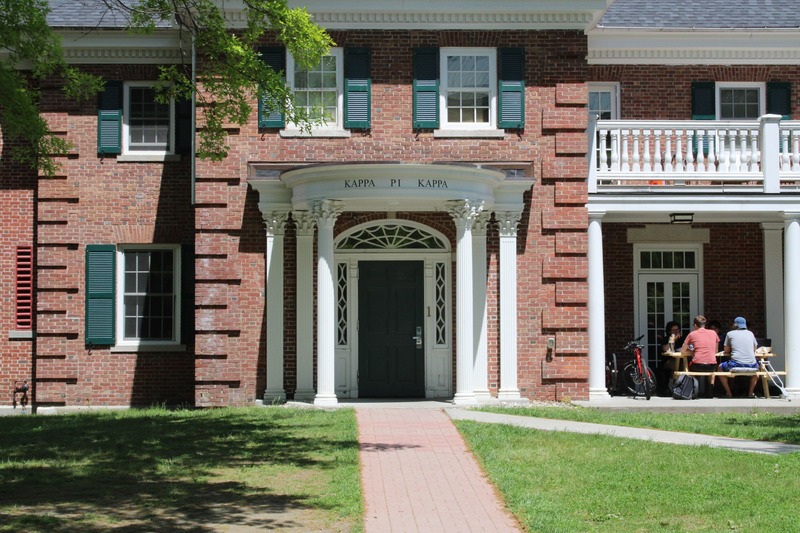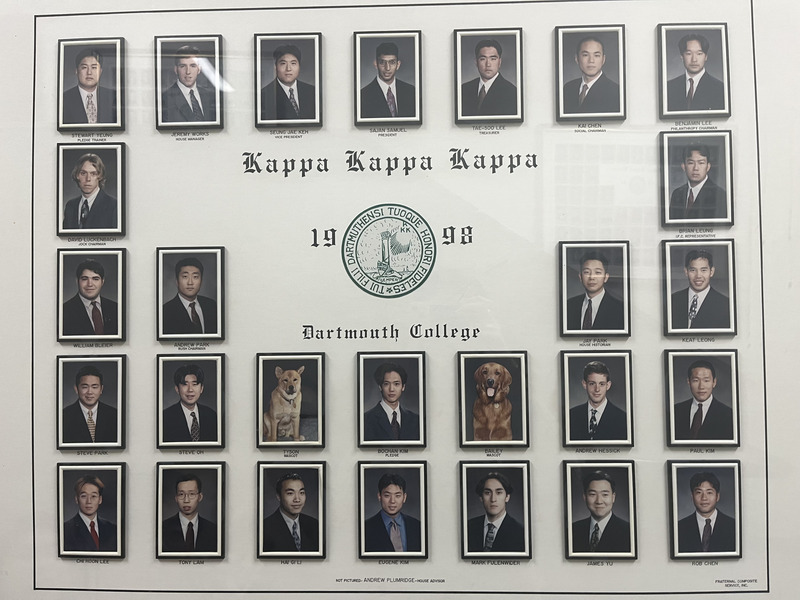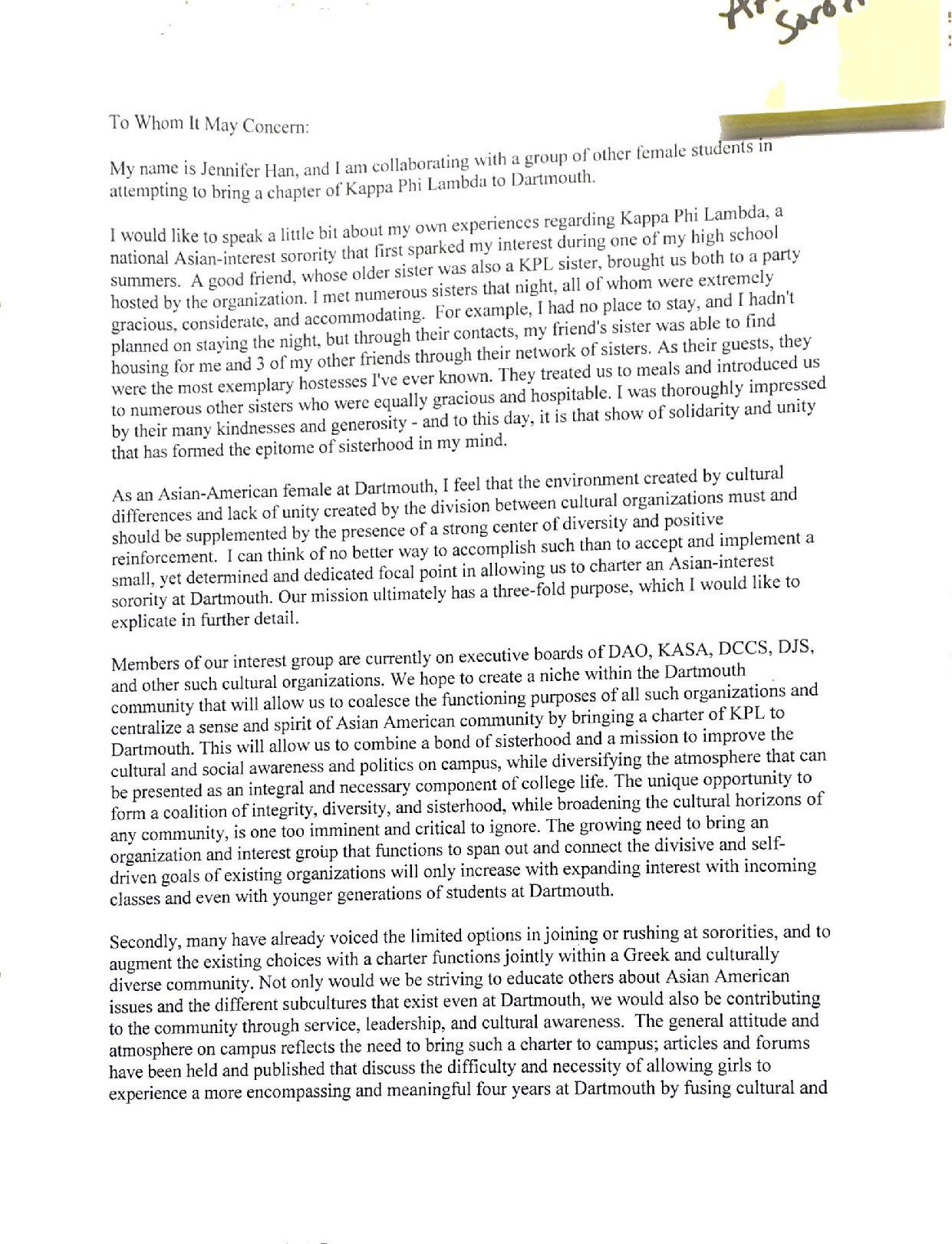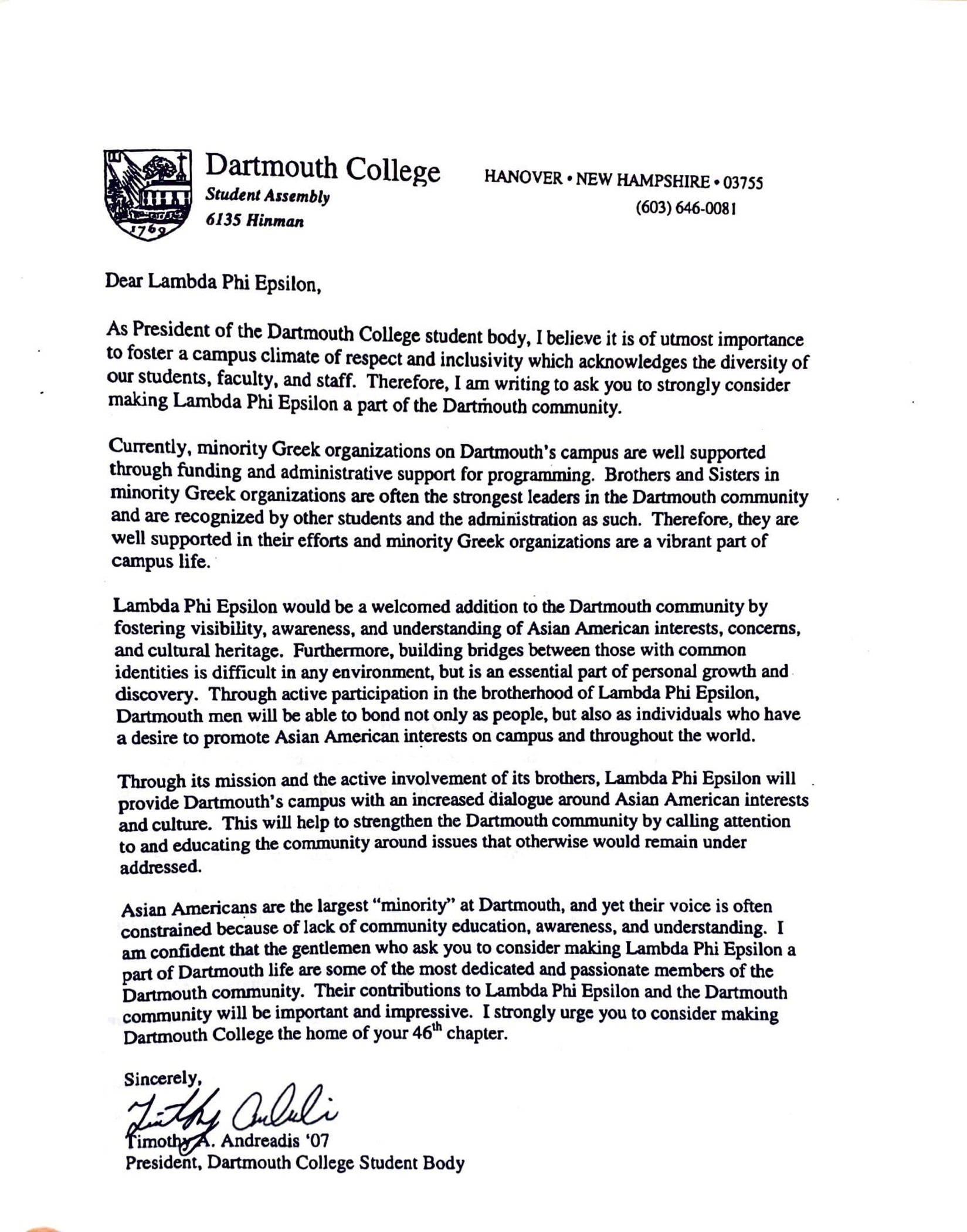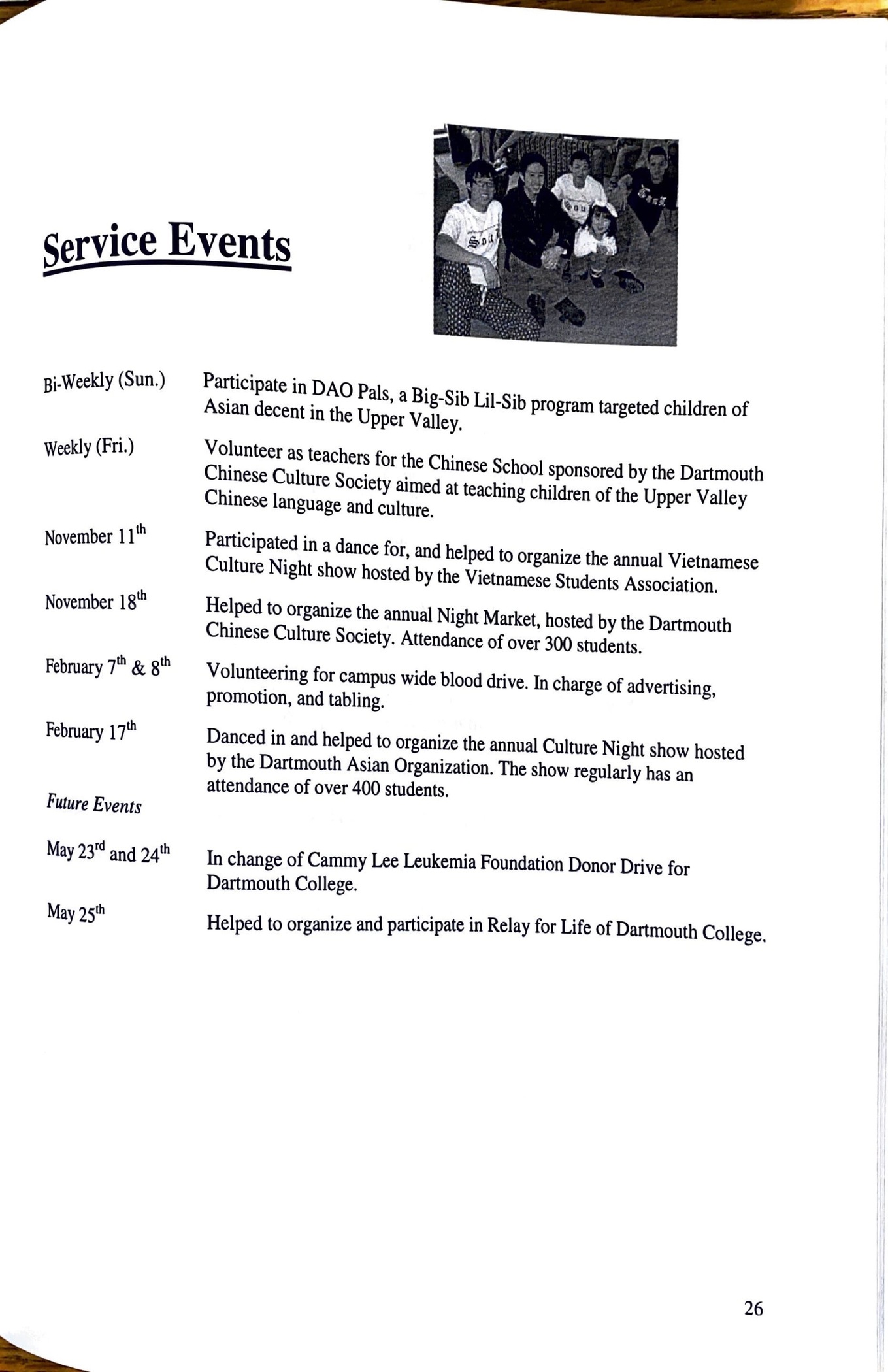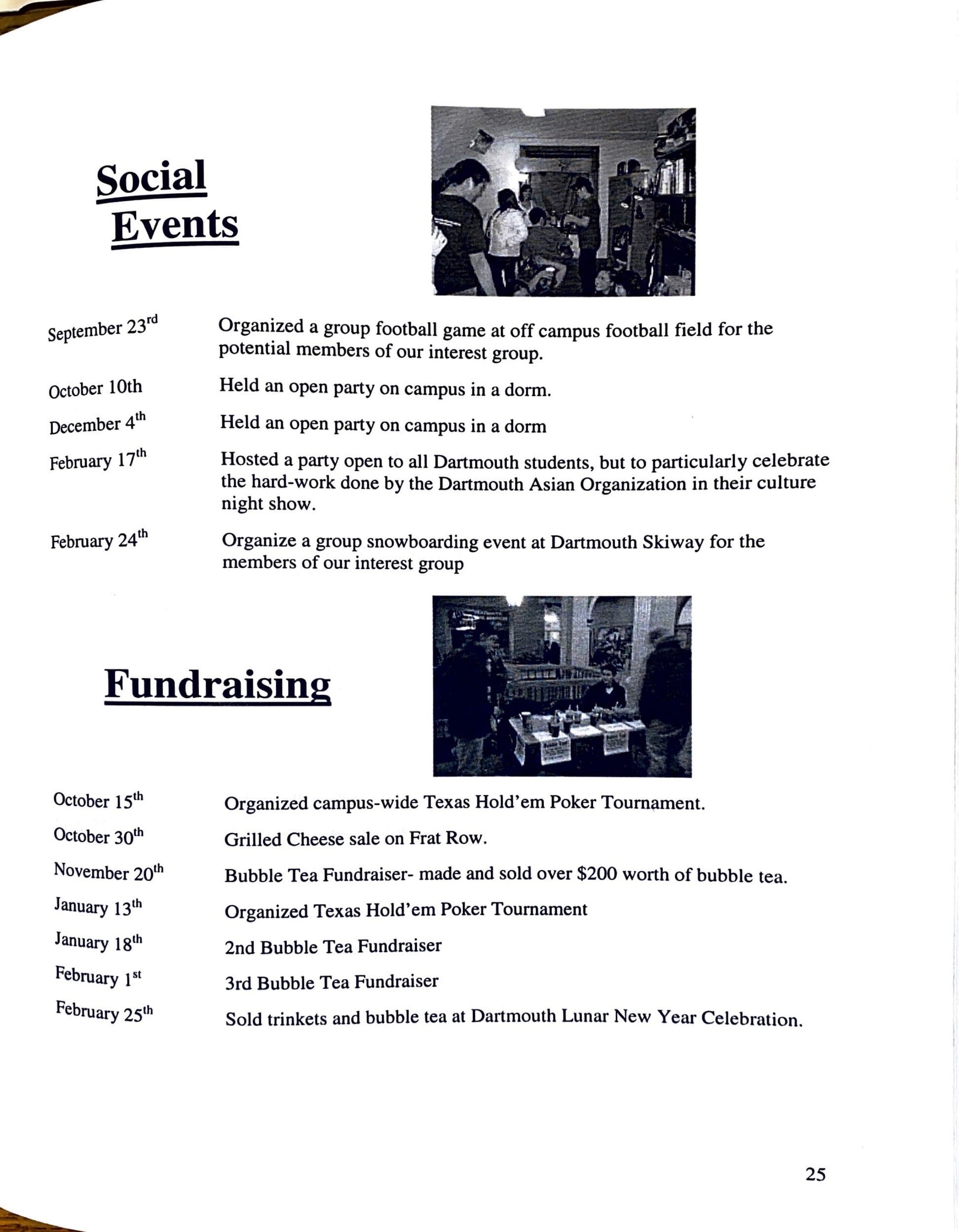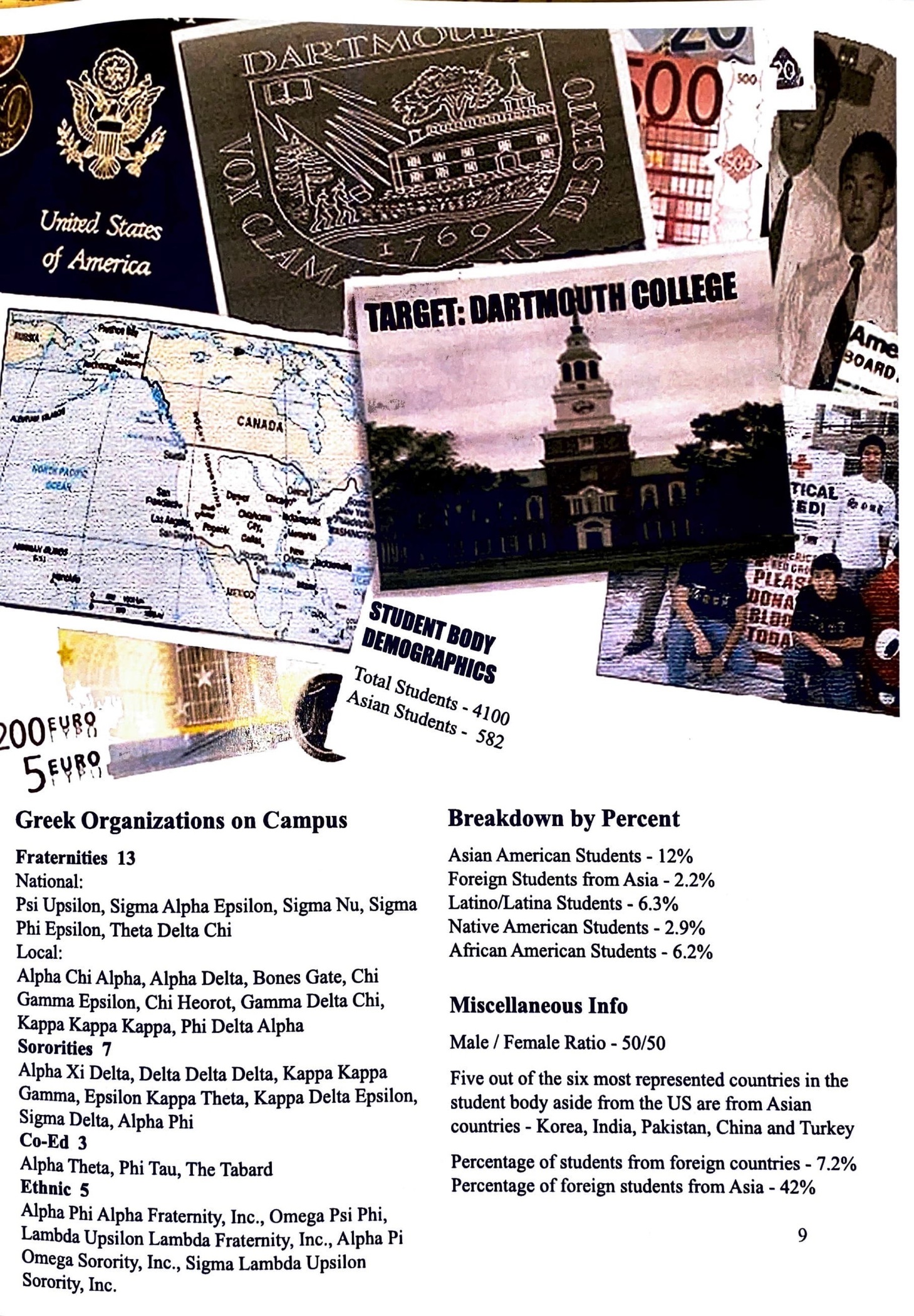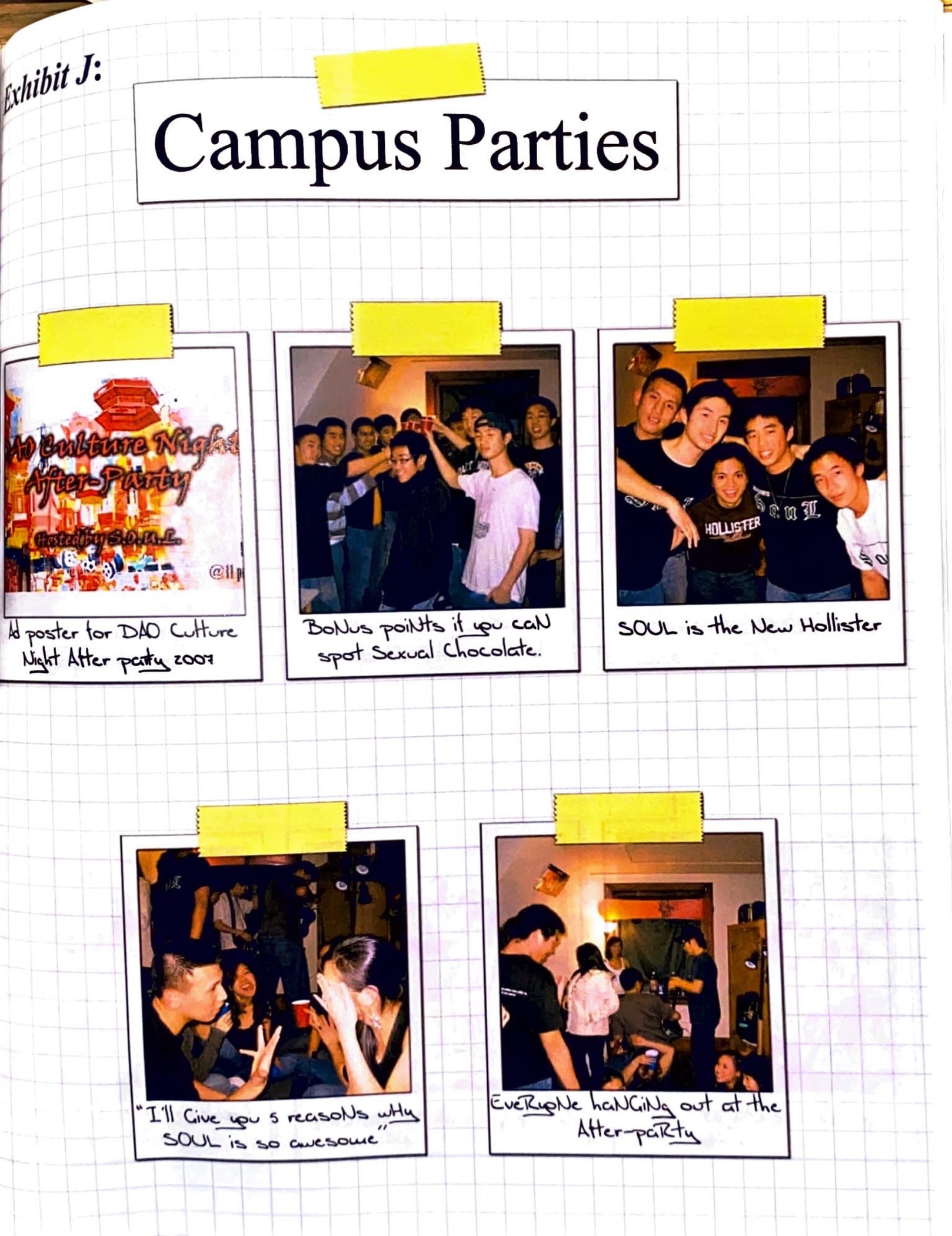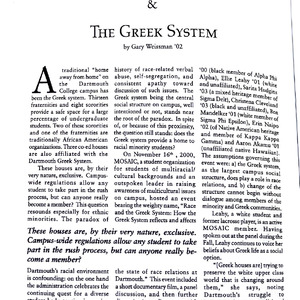Greek Life
Greek life is a core part of Dartmouth's social scene. Although it has a history of excluding Asian Americans, on several occasions, Asian American students at Dartmouth have participated in existing Greek houses and even attempted to form Greek spaces of their own
Asian Participation in "Frat Culture"
While no true Asian affinity Greek houses have ever been established at Dartmouth, there have been some Greek spaces that have historically housed a significant number of Asian and Asian American students in contrast to other Greek houses.
Kappa Kappa Kappa: a Greek space claimed by Asians
From the mid ‘90s to the early ‘10s, the membership of Kappa Kappa Kappa (or Trikap, now known as Kappa Pi Kappa, or Pikap as of 2022), stood out for being predominantly Asian. In an opinion piece published in The Dartmouth in May 2001, an alumnus described the fraternity as "an Asian-majority house where we set the rules, chose the music, created the environment, and welcomed anyone who found our style of brotherhood and culture attractive." The author of this article and other ex-brothers recall that in the mid '90s, the house's membership was dwindling, so a group of Asian American students block-rushed the house, transforming it into a majority-Asian space.
Alumni from the early '90s referred to the house as "conservative," but by the late ‘90s through the early ‘00s, it had become an alternative social scene. Members ditched traditional Greek life in favor of hip-hop, raves, and an urban nightlife scene. Coinciding with the formation of Asian American centered hip hop and performance groups such as Sheba and Far Off Broadway, TriKap tapped into a diverse, national urban culture.
Today the house is no longer overwhelmingly Asian and Asian American, but it continues to have a more diverse membership relative to other Greek houses at Dartmouth.
Zeta Psi: The New Asian Fraternity
While Pi Kap's status as an "Asian frat" has faded over time, other Greek houses have taken its place. Dartmouth's Zeta Psi chapter has had a long history at Dartmouth, but it was derecognized in May 2001 due to a scandal involving a newsletter revealing sexual abuse. The fraternity was re-recognized in 2009. Since then, Zeta Psi has come to house many students of color, with a notable number of Asian members throughout the 2010s and the present.
What About an Asian Sorority?
While certain fraternities seem to be popular for Asian men, the same cannot be said for sororities at Dartmouth. Some current students remark that although there are some sororities that are known to have more students of color in their membership, they perceive a lower tendency for Asian women to group together than men.
Gender-Inclusive Greek Houses: An Intersection between Queer and Racial Identity
Many Asian and Asian American students also identify with the LGBTQ community at Dartmouth. 4A alumni remember significant amounts of intersectionality between the queer and Asian activist communities, occasionally gathering in Greek spaces such as the Tabard, Epsilon Kappa Theta, and Alpha Theta.
New Greek House Proposals
Dartmouth SOUL and Lambda Phi Epsilon
The Dartmouth Society of Unity and Leadership (SOUL) was an interest group formed by a group of Asian men in 2005, intended to establish a chapter of Lambda Phi Epsilon, a national Asian affinity fraternity, at Dartmouth. SOUL members recalled that the desire for Lambda Phi Epsilon was not only founded in a desire for comfortable Asian social spaces in Greek life, but also the desire to build an alumni network.
As an interest group garnering support for the establishment of a new Greek chapter, SOUL ran a variety of social and service events including parties, fundraisers, and a bone marrow drive.
Despite its organization and passionate membership, SOUL only acted as an interest group for about a year. According to David Louie '09, SOUL was able to secure approval from the Lambda Phi Epsilon national group, but the organization fell apart just a month afterwards due to internal conflicts. According to Louie, people started to leave and the remaining members felt it was "not beneficial to have [SOUL] with just half the group."
Kappa Phi Lambda
In February of 2005, a student wrote a proposal for a Dartmouth chapter of national Asian affinity sorority Kappa Phi Lambda, with the following reasons:
- The proposed chapter would create unity between the woman-identifying members of Asian organizations such as DAO, KSA, DCCS, DJS, etc.
- There were limited options for Asian women-identifying students who wished to rush
- The chapter would create a support network for Asian women
In spite of the existence of this proposal, we were unable to find any official response to this letter, and no Asian affinity Greek spaces exist at Dartmouth today.
Hostilities to Asian Americans
In an opinion piece published in Main Street, an Asian American student periodical, Gary Weissman '02 discusses racial dynamics as they pertain to Greek life. Weissman claims that Greek houses by their nature are exclusive, and the general atmosphere of the system makes minority students uncomfortable. However, Weissman also acknowledges that calling all of Greek life unwelcoming or racist is not a fair assessment. Many members of racial minority groups have found their place in Greek houses and it is rare to find a fraternity or sorority that is explicitly non-inclusive.
However, this is not to say that there is not more subtle hostility towards students of color at Dartmouth. Parties hosted by fraternities often have offensive or racially stereotypical themes. One sorority at Dartmouth sent an email to prospective members that the Greek house was only looking for "All-American girls," according to one Dartmouth '17. And it is no mystery that Greek life continues to be dominated by a white student body.

